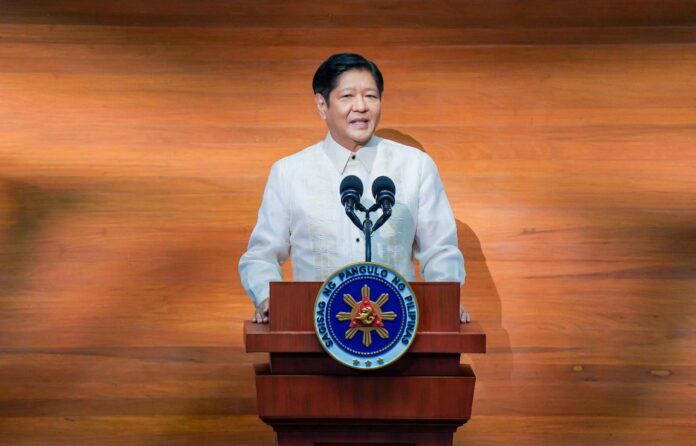The Samahang Industriya ng Agrikultura (SINAG) on Monday urged agricultural stakeholders to rally behind President Ferdinand Marcos Jr. and help boost the sector’s production output.
Jayson Cainglet, SINAG executive director, particularly noted that for two cropping seasons local farmers enjoyed fuel and fertilizer subsidies from the government that significantly improved harvests.
“The last two cropping seasons have been very positive to our rice farmers because of the help of the private sector by buying palay at P21 per kilo and higher and the increased fuel and fertilizer subsidies from the government. Farmgate prices have increased and cost of producing palay has been reduced because of these interventions,” Cainglet said.
According to him, these and other developments have encouraged farmers to push ahead and the institutional support of the Department of Agriculture further motivated the local rice industry.
Cainglet said SINAG takes at face value the President’s assurance that food imports will be calibrated but at the same time urged that those who abuse the privilege be prosecuted in full so that agricultural smuggling and hoarding is effectively checked.
SINAG also said the recently signed New Agrarian Emancipation Act which freed agrarian reform beneficiaries (ARBs) from agrarian debts be reinforced with subsidies to encourage the keeping of landholdings rather than sell them.
Cainglet further said the proposed institutionalization of Kadiwa rolling stores is a welcome idea not only as intervention mechanism but also because it benefits consumers and producers alike in terms of retail and farmgate price.
ENERGY
In the energy sector, Tetchi Cruz-Capellan, chief executive officer at Sun Asia Energy and a member of the Philippine Solar and Storage Energy Alliance, said the President correctly identified transmission issues as deterrents to renewable energy (RE) development and energy security.
“Removing this bottleneck and resolving the interconnection issues require strict governance as the President already identified through performance audit. But above all, building the infrastructure demands huge investments. Waiting is not an option for a country growing at 7 percent with an aspiration of 50 percent renewable energy in the energy mix. We have to build the lines and the substations,” Capellan said.
Given the importance President Marcos assigned to the development of transmission lines, the National Grid Corporation of the Philippines (NGCP) consequently “pledges its commitment” to the government’s energy initiatives.
“NGCP vows to concentrate all available resources toward the completion of ongoing transmission projects while expediting others in the pipeline. Recognizing the importance of increasing the presence of renewable energy in the country’s energy mix, the NGCP will draw on its strategic partnership with the State Grid Corporation of China (SGCC),” it said.
In leveraging SGCC’s expertise in renewable energy integration, the NGCP hopes to bolster its capacity to hasten the transition to renewable and sustainable energy sources and facilitate the increasing adoption of renewable energy technologies into the national grid.
NGCP also highlighted the improving disaster resilience of the grid infrastructure and the unceasing upgrade of equipment and manpower, especially those that prevent disruptions, or provide expedient repair, when disaster strikes.
“We agree with the President’s sentiments. Even before the SONA, NGCP already worked towards the vision that he mentioned. His vision is completely aligned with ours. We know we are on the right track and we’re more motivated to complete all our objectives in a prompt manner,” said Anthony Almeda, NGCP president and chief executive officer.
Among the top NGCP priorities include the swift completion of the Mindanao-Visayas interconnection project and Stage 3 of the Cebu-Negros-Panay interconnection project which are crucial projects that have been partially energized.
NGCP appealed to local government units to extend essential support by promptly granting the relevant permit and provide the necessary assistance in addressing right-of-way issues that hinder the smooth implementation of projects.
INFRASTRUCTURE
The think tank Infrawatch PH said that while President Marcos Jr. bared an impressive roster of infrastructure projects, particularly the 123 new ones startted under his administration, there remains a lack of clarity on the primary objective of the recently passed Maharlika Investment Fund (MIF) law.
Terry Ridon, Infrawatch PH convenor, said the President’s policy mandate for the MIF reflects a confusion of the various funding modalities and objectives of infrastructure projects.
“If the MIF’s primary objective is to make high-impact and profitable investments, it should only participate in Build Better More projects with indisputable commercial outcomes, such as airports, railways and power projects. This will also mean the MIF ultimately competes with the private sector in vying for projects under the public-private partnership,” Ridon said.
Infrawatch PH said the government’s presence could dampen private sector and foreign investor participation in various flagship and commercially viable PPP projects “as the cloud of government power will hang over these commercial transactions.”
ENVIRONMENT
On environmental issues, Greenpeace Philippines called on the Marcos administration to deliver “genuine progress” on the climate front.
Greenpeace demanded the government hold oil and gas companies responsible for the worsening climate crisis by paying reparations to communities affected by climate-related disruptions.
“The real state of the nation is that the billions of pesos spent in mitigating the worst effects of climate change and adapting to these new realities cannot catch up to the escalating impacts that Filipino communities experience right now. The responsibility for paying for climate impacts falls squarely on corporations who continue to deny their responsibility for the climate crisis,” said Jefferson Chua, Greenpeace campaigner.
“The President must turn his words on climate justice into action and show that his allegiance is not to big businesses that continue to profit from destruction, but to the Filipino people,” Chua said.







